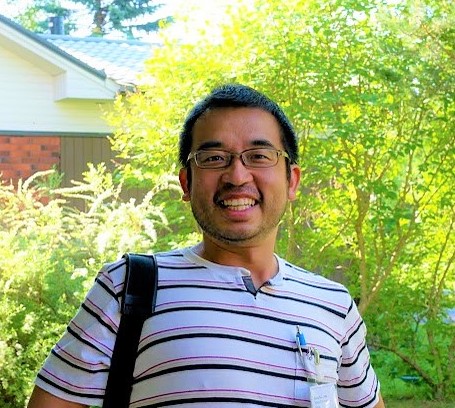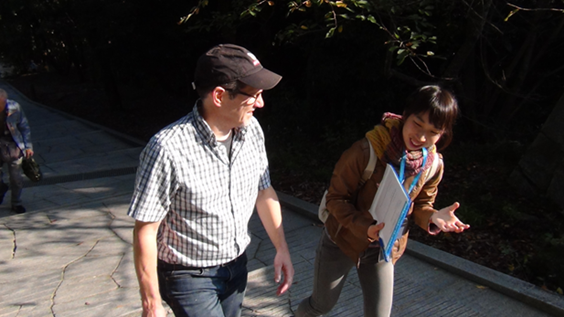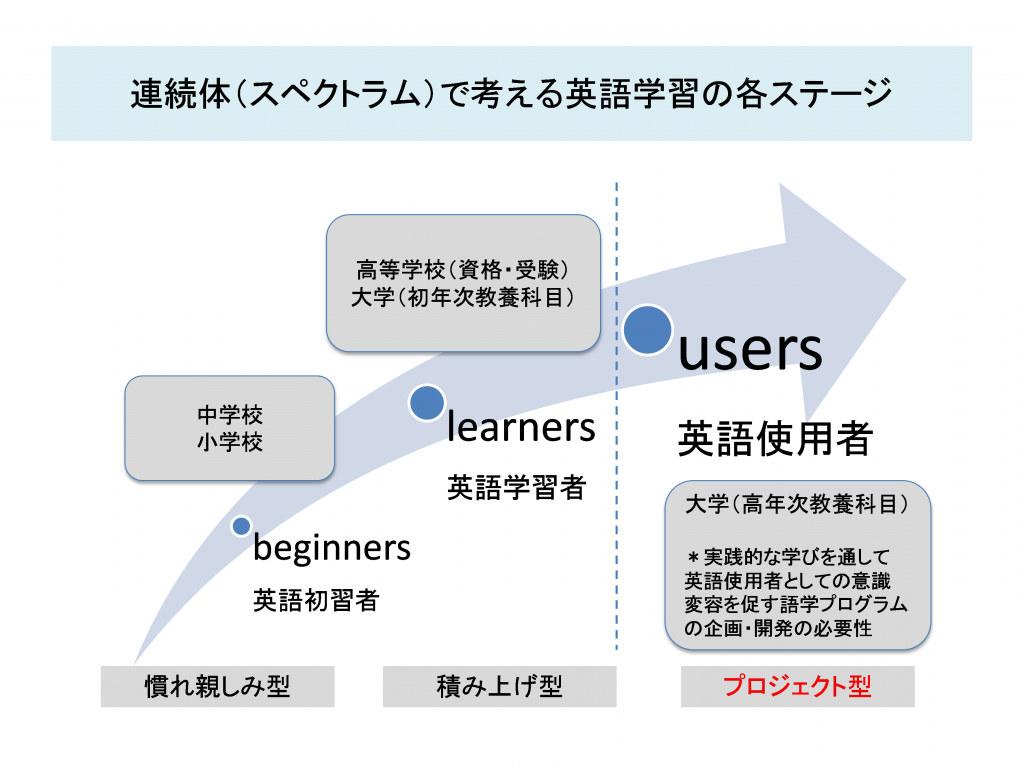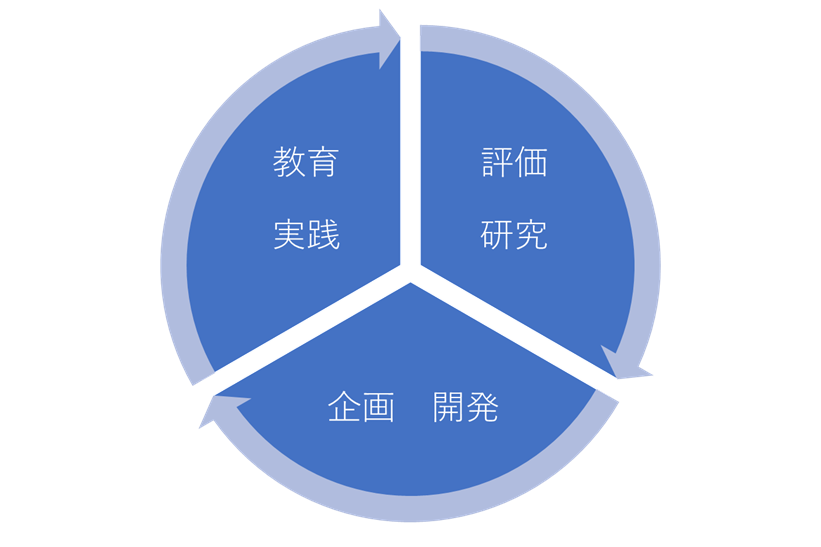Do you think English is one of the “subjects” you learn in school?
※The content is current at the time of writing.
Planning and development of English language education programs that promote a change in consciousness as English language users through practical learning

Do you think English is just another “subject” you learn in school?
It is true that English is a subject, but to begin with, English is a “language” used by many people around the world. Perhaps when you first started learning English, you may have been “excited” to learn it because you wanted to be able to communicate with people around the world, but that feeling may have changed because of “exams” such as high school and university entrance examinations. When we do a lot of grammar questions and exercises in textbooks and reference books in order to answer English exam questions correctly, we tend to forget the aspect of English as a language “that can be used,” i.e., its fundamental role. Certainly, getting a good score on a test is important, but it is only one aspect of the language “English. Therefore, I am conducting research and development with the idea of what kind of educational methods can be developed to help people pay more attention to the “role of English as a means of communication”.
Research Overview
My specialty is English education. As the term implies, it is “teaching English,” and this work can be divided into three main categories. The first is the educational practice of teaching English, literally, to children, students, and pupils. The second is to evaluate that practice, identify issues and problems, and research how to improve it. The third is to plan and develop updated or new teaching methods based on the results and findings of such research to determine how to teach English more effectively. These three are interconnected. We conduct evaluation research to examine the findings of our teaching practices, and the results of that research are then applied to the next new teaching practice, and the process is ongoing.
Research Features
In the short term, based on the feedback obtained from students in each class, we may decide to incorporate a new idea in the next class, or in the long term, we may plan an English teaching program for each semester or year, and have students acquire the skills of “△ △△”. This is one of the characteristics of this system. Although there was a time when this program could not be implemented due to the spread of the new coronavirus infection, in recent years we have planned and developed a project-based English education program that takes students out of the classroom and gives them a tour of the local Matsuyama area in English. In fact, the idea for this project came from a student who commented that he wished he had an environment where he could use English more. There are various teaching methods proposed for English education, and one of them is this project-based program. One of them is the project-based method, which encourages active, communicative learning of English through some kind of project (in this case, giving sightseeing tours in English), rather than the passive method of learning English from a textbook. Fortunately, Matsuyama and its surrounding area have many tourist attractions and attract many visitors from abroad. If we have classes that allow these tourists to become sightseeing guides in English, we can meet the needs of people like the students mentioned earlier who want to use English.


Research Attraction
I am very happy when I hear comments such as “I like learning English more now” or “I have more confidence in speaking English” after taking classes that I have planned and developed. I am working hard on research and development because I believe that if people can experience what they can do in English, they will be able to learn English for a long time with a sense of enjoyment.
Future Outlook
English education in elementary schools officially started in 2020 when Corona began. The term “beginner English language learners” is used, but in compulsory education, a “familiarization” style of education is common. In the latter half of junior high school, students acquire knowledge of English, i.e., vocabulary and grammatical manipulation skills, in a “building-up” style of education, just as high school students do. However, most people, unless they use English in their work, are probably still learners of English in this “pile-up” style, and are slowly building up their knowledge, only to have it fall apart a little, and then build it up again. It would be a shame to end up as a learner for the rest of your life. The challenge is that you need to change your mindset within yourself as an English user, which is the next stage of this process. Since the stage as an English learner is never complete, I think it is necessary to change your mindset when you graduate from high school or finish your first year of college. You can use English. Perhaps the normative mindset that says, “You don’t use it and you shouldn’t use it until you can do it properly” gets in the way, and it is difficult for Ehime University students to have the awareness that they are English users. What is needed as an educational institution, then, is to plan and develop an English language education program that encourages students to change their awareness as English language users through practical learning. This program will lead to the final stage of education, the “project-based” stage, which is the final stage of learning from the familiarization stage to the building-up stage.

Message to those who are interested in this research
The Corona Disaster has created a much better environment for connecting and communicating with the rest of the world online. The world is connected to your smartphones and computers. The environment in which you can use English is now in your hands. In this new stage of the English learning environment, why don’t we think together about what kind of teaching methods we can plan and develop for language learning?


